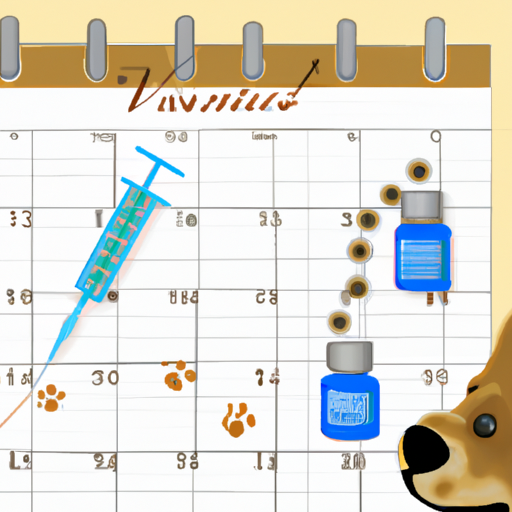As a caregiver to your beloved furry companion, it’s only natural for you to worry about their health and well-being. One of the most common questions dog owners usually ask is, how often should dogs be vaccinated? It’s an important query that requires a thorough and detailed answer.
The Importance of Vaccination for Dogs
Vaccination plays a crucial role in maintaining your dog’s health. It protects them from various diseases that can be fatal, such as rabies, parvovirus, distemper, and canine hepatitis.
Vaccines work by stimulating the immune system to produce a response against specific pathogens. If your dog is ever exposed to the disease in the future, their immune system will be prepared to fight it off.
Puppy Vaccination Schedule
Puppies, due to their immature immune system, are more susceptible to diseases. That’s why it’s important to start their vaccination at an early age.
According to the American Animal Hospital Association (AAHA), a typical vaccination schedule for puppies could look like this:
| Age of Puppy | Vaccines |
|---|---|
| 6-8 weeks | Distemper, Parvovirus |
| 10-12 weeks | DHPP (vaccines for distemper, adenovirus [hepatitis], parainfluenza, and parvovirus) |
| 12-24 weeks | Rabies |
| 14-16 weeks | DHPP |
| 12-16 months | Rabies, DHPP |
Please remember that the vaccination schedule might vary based on the puppy’s health, breed, and risk factors. Always consult with your vet for a personalized schedule.
Adult Dog Vaccination Schedule
Once your puppy grows into an adult dog, the frequency of vaccination decreases. However, it remains an essential part of their health routine.
A typical vaccination schedule for an adult dog might look like this:
- DHPP: This is a combination vaccine that’s given every 1 to 2 years, depending on the dog’s lifestyle and risk factors.
- Rabies: This is a legally required vaccine in many areas. It’s given every 1 to 3 years, depending on the type of vaccine used and local regulations.
- Leptospirosis, Lyme disease, Bordetella, and Canine Influenza: These vaccines are optional and given based on the dog’s risk exposure. They’re typically administered annually.
The Role of Lifestyle and Geography in Vaccination
Your dog’s lifestyle and geography play a significant role in determining the frequency of vaccination.
For instance, a dog living in urban areas might need more frequent Bordetella vaccinations if they frequently visit dog parks or boarding facilities. Dogs living in areas with high tick population may need Lyme disease vaccine.
FAQ
To wrap up, here are some frequently asked questions about dog vaccinations.
1. Can vaccinations make my dog sick?
While vaccines are generally safe, they can sometimes cause mild side effects like fever, sluggishness, and reduced appetite. Serious side effects are rare. If you notice anything unusual after a vaccination, consult your vet immediately.
2. Is it okay to delay my dog’s vaccination due to the COVID-19 pandemic?
While it’s understandable to worry about COVID-19, it’s essential not to delay your dog’s vaccinations, especially for fatal diseases like rabies and parvovirus. Many vet clinics are providing curbside services to minimize contact.
3. My dog is an indoor pet. Does it still need to be vaccinated?
Yes. Even indoor pets can be exposed to diseases. For example, you can inadvertently bring in the parvovirus on your shoes. Also, some vaccinations like rabies are legally required.
4. Can I vaccinate my dog myself at home?
While it’s technically possible, it’s generally not recommended. Vaccinations should be administered by a trained vet to avoid complications. Also, you’ll need a vet’s certification for some vaccines like rabies.
Vaccinations are a vital part of your dog’s healthcare. By ensuring a regular vaccination schedule, you’re not just complying with the law but also protecting your beloved pet from potentially fatal diseases. When in doubt, always consult with your vet. They can provide you with the best advice tailored to your dog’s needs.



